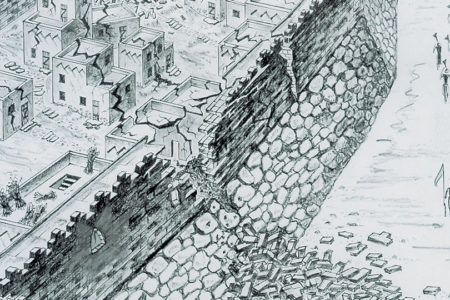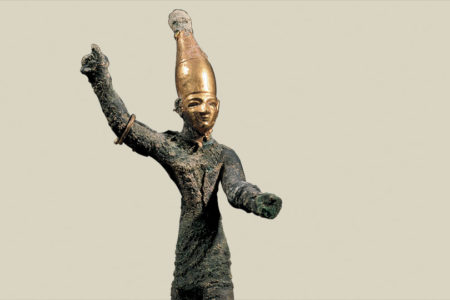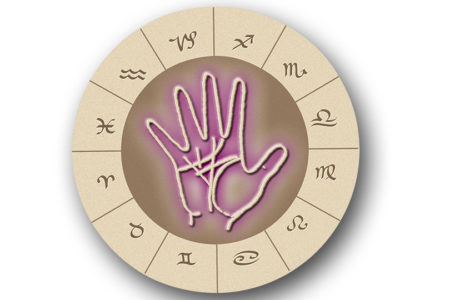The New Creation
Revelation 21:1–8
The subject of eternity piques people’s interest as no other theme in Scripture. People intuitively know that there is a more fulfilling existence beyond this life because the transitory events on earth do not satisfy. But to affirm the reality of eternity requires, not intuitive speculation, but a source that transcends mankind itself. God has affirmed throughout Scripture that all believers will live forever. In the last two chapters of Revelation, God provides mankind with an overview of what eternity will be like.
The Creation Declared
With the Great White Throne Judgment completed, John’s gaze is focused on a new creation. Three times in chapter 21, the apostle said, “I saw.” He saw a “new heaven and a new earth” (v. 1), a “new Jerusalem” (v. 2), and the spiritual state of the new Jerusalem (v. 22). Scholars are divided over whether this is a total renovation of heaven and earth or a discarding of the old before replacing it with a new creation. When all the evidence is studied, Scriptures seem to teach the dissolution of the old heaven and earth in favor of the new. This is reasonable because the old heaven and earth are tainted by the curse of sin.
Although John provides an overview of the new heaven and earth, little information is given in Scripture concerning their structure and makeup (see Isa. 65:17; 66:22; 2 Pet. 3:13). The fact that there is no definite article before the words “heaven” and “earth” stresses the qualitative nature of the new heaven and earth, rather than their identity.
The Bible is silent concerning the earth’s atmosphere, as well as the structure of planets-in the universe, except to say that there is no need for the sun nor the moon (v. 23). Neither is any information given on the new earth’s form, color, or vegetation. John goes on to reveal that the new earth has “no more sea” (v. 1), indicating the removal of large bodies of water that are present today. The earth will take on a very different look, considering that presently three-fourths of the earth’s surface is covered with water. However, God assures that mankind in its glorified state will not need water to sustain life.
Often Bible teachers have confused the eternal state with the Millennial Kingdom. This is understandable because sometimes both states are mentioned in the same verse without revealing the time gap between them. The same is true when reading verses about Christ’s First and Second Advents in Isaiah 61:1–2 (cp. Lk. 4:17–19).
Another example is Isaiah 9:6–7, where both Christ’s birth and Second Coming are mentioned. The first part of verse 6 refers to Jesus’ birth, but the remaining portion of verse 6 and verse 7 point to His Second Coming. The prophets often saw Christ’s coming, but they had no idea that there were two comings with many intervening events. Chapters 21 and 22 refer to the eternal state, not to the Millennial Kingdom.
The City’s Descent
Although the new heaven and earth must have been awe-inspiring to John, his attention was riveted on “the holy city, new Jerusalem, coming down from God out of heaven” (v. 2). The words “holy city” emphasize the character of the city because it is “the city of … God” (3:12), which has not been tainted by sin.
There has been much discussion about whether this city will be visible during the Millennial Kingdom. Some scholars teach that it will be like a satellite city orbiting or hovering above the earth during that time. Those holding this view believe that the new Jerusalem is being prepared as the dwelling place of the church (Christ’s bride) during the Millennial age (Heb. 12:22–24). Dr. John Walvoord states, “The possibility of Jerusalem being a satellite city orbiting or hovering over the earth during the millennium is not specifically taught in Scripture. At best, it is only an inference based on the implication that the city has been in existence prior to its introduction in Revelation 21. The city’s characteristics are presented in chapter 21, however, they are related to the eternal state rather than to the Millennial Kingdom” (John F. Walvoord, The Revelation of Jesus Christ, p. 313).
This city is said to be “prepared as a bride adorned for her husband” (v. 2). Because the church is called the bride of Christ, some believe that the new Jerusalem will be the exclusive home of the church throughout eternity. There are a number of problems with this view. The Bible does not say that this city is prepared for the church only. The Bible does say that the city is prepared “as” a bride—that is, gloriously arrayed like a beautiful bride prepared for her husband. Throughout Scripture, the figure of marriage is used in reference to both Israel and the church. Finally, at the inception of the eternal state, this city will descend to the new earth, and all redeemed people will have access to it (21:24–27).
As John gazed on the new Jerusalem, he suddenly heard a great (loud) voice out of heaven: “Behold, the tabernacle of God is with men, and he will dwell with them, and they shall be his people, and God himself shall be with them, and be their God” (v. 3). The word “tabernacle” points to the tabernacle in the wilderness, where God dwelt with His people in the holy of holiest Earlier, John had seen the tabernacle in heaven (13:6; 15:5). In eternity, God will “dwell” (i.e., tabernacle) on earth in the new Jerusalem, symbolizing His fellowship with and blessing of the redeemed, who will experience a new, intimate relationship and fellowship with the Lord. Such fellowship is unfathomable today, far beyond the scope of a believer’s comprehension.
The Citizens’ Delight
Every believer’s experiences on earth will vanish, never to be remembered in eternity. “God shall wipe away all tears from their eyes” (v. 4). This pictures God’s great compassion in wiping every tear from a believer’s eyes. There will be no tears shed in eternity over the sin and sorrow of this life, nor pain for loved ones who are eternally separated from Christ. The text goes on to say, “and there shall be no more death, neither sorrow; nor crying, neither shall there be any more pain” (v. 4). Dwelling in the midst of the redeemed, God will provide a perfect state of eternal peace, blessing, and uninterrupted bliss because the former things—such as Satan, sin, and the old heaven and earth—are “passed away” (v. 4). Not only will they be removed, they will “not be remembered, nor come into mind” (Isa. 65:17).
People will not live in a vacuum in eternity. God described what will replace the former things. “And he that sat upon the throne said, Behold, I make [form] all things new” (v. 5). The word “Behold” introduces what follows as a special pronouncement—not just to John but to all the redeemed throughout time. The reader is to give careful attention to the coming revelation.
The apostle was instructed, “Write; for these words are true and faithful” (v. 5). John was so mesmerized by the revelation that he had to be aroused to take pen in hand and record what was to follow. The apostle was assured that the information he was about to receive was true and trustworthy, resting upon the veracity of God Himself.
The one sitting on the throne speaks again: “It is done. I am Alpha and Omega, the beginning and the end” (v. 6). The words “It is done” are in the perfect tense, indicating that God’s program for the world—from its inception at creation through eternity—will be brought to completion. This assures believers that God will accomplish all that He has planned for mankind. God is the “beginning [first] and the end [finisher]” of all things and will faithfully guide the destiny of His creation to its designated conclusion.
Not only will the eternal state and the new Jerusalem be a splendid place, it will be a satisfying place. First, God promises, “I will give unto him that is athirst of the fountain of the water of life freely” (v. 6). Thirst is used in the Bible to express spiritual need (see Isa. 55:1; Jn. 4:13–14; 7:31–39). The redeemed who have a spiritual thirst to know God in His fullness will have their souls totally satisfied in eternity. This spiritual water will be abundantly and freely bestowed upon all redeemed people.
A second promise is given: “He that overcometh shall inherit all things” (v. 7). It is beyond our finite ability to comprehend what this will include. We do know, however, that it will encompass the new heaven and earth and all the glories of the new Jerusalem. This will apply to all believers, for all true believers are overcomers (1 Jn. 5:4–5).
Dr. Erwin Lutzer put this promise in perspective when he wrote, “The universe is 20 billion light years in diameter, and if there are stars millions of times greater than our earth, man is but a speck of dust on the cosmic landscape. The discovery of the immensity of the universe does not diminish but actually magnifies man’s role in the cosmos. For if Christ is to rule over all things and we are to reign with Him, then we will be ruling over all the galaxies, affirming Christ’s Lordship over the whole universe. In a way that we cannot comprehend, all things will be in subjection to Christ, and we shall be a part of His eternal rule” (Erwin W. Lutzer, Your Eternal Reward, pp. 156–157).
Finally comes a promise that exceeds them all: “I will be his God, and he shall be my son” (v. 7). Here John transferred the Messianic formula of intimate relationship, which God the Father has with Christ, to the glorified saints. Such a statement is even more incomprehensible!
In verse 8, with a few strokes of his pen John abruptly mentioned eight categories of people who will not inherit eternity. The “fearful” are cowardly individuals who, because of fear, will not confess Christ openly when confronted with persecution (see Heb. 10:38–39). The “unbelieving” are those who deny faith in Christ by their conduct and speech. The “abominable” are those polluted by gross acts of idolatry. “Murderers” are malicious, savage killers (especially those who kill the Tribulation saints).
“Fornicators” are those who practice sexual immorality. “Sorcerers” are those who mix drugs with the practices of spirit worship, witchcraft, and magic. “Idolators” are worshipers of idols and images (this practice will be prevalent when the world bows to the Antichrist’s image). “All liars” are those who habitually deceive others.
None of the aforementioned people will have access to the new Jerusalem. They will spend eternity “in the lake which burneth with fire and brimstone” (v. 8), along with Satan, the beast, and the false prophet (19:20; 20:10, 14–15). This is called “the second death” (v. 8), and is second only to the physical death these individuals will suffer. This is an eternal death (not annihilation), which means that these people will be separated from God, cast into outer darkness, and suffer eternally in the lake of fire.
What awaits us in eternity should motivate us to become serious about our commitment to the Lord during our relatively short time on earth. Dr. J. I. Packer said it well when he wrote, “Lack of long, strong thinking about our promised hope of glory is a major cause of our plodding, lack-luster lifestyle” (Ron Rhodes, Heaven: The Undiscovered Country, p. 179). Setting our affections on the glories that await us in eternity will renew and motivate us to greater service for our Lord in this present age. Today, let us purify ourselves afresh before the one who sits enthroned eternally.







